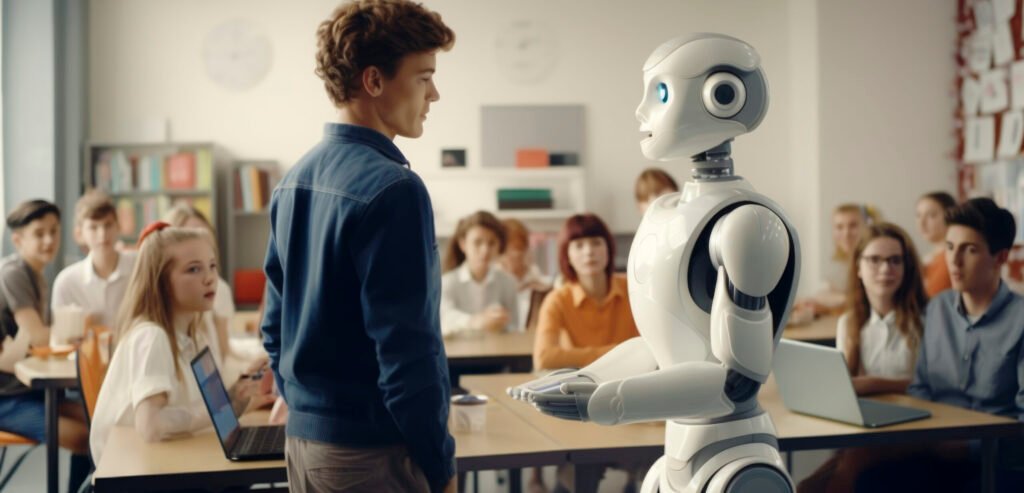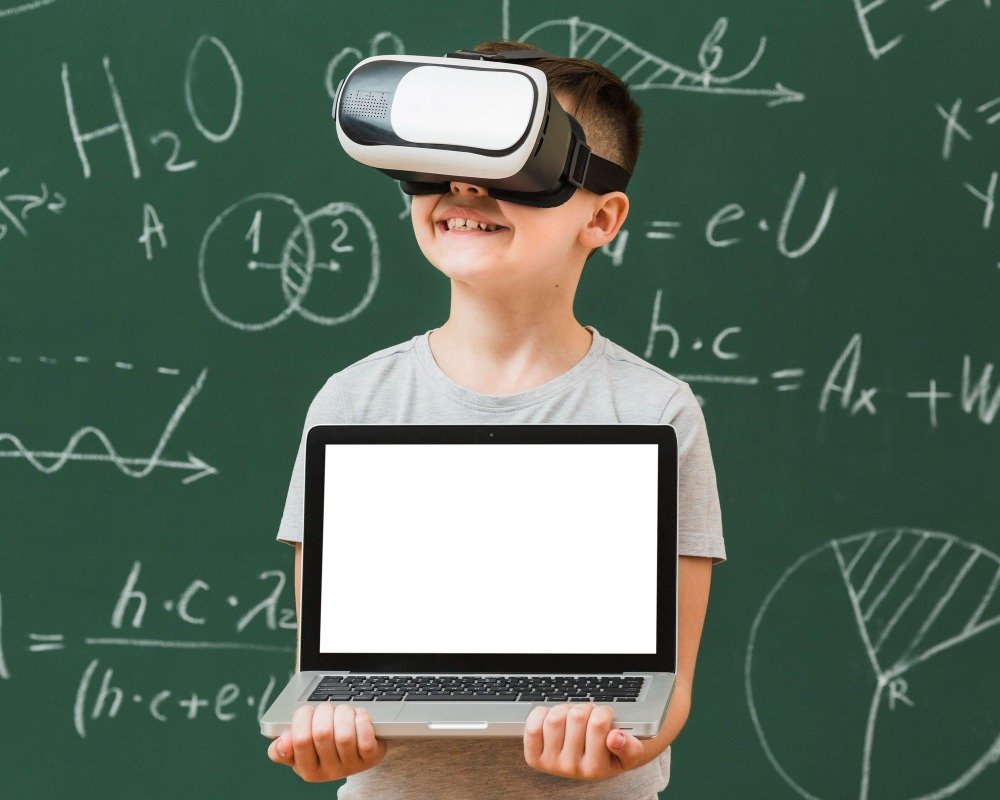
AI! Are you aware that in the twenty-first century, AI is transforming teaching techniques and optimizing individual learning experiences for students in the digital age? In an era in which everything seems to be moving at an incredible speed, education is no exception. Nowadays, technology permeates all areas of human activity. Technology is the practice of acquiring knowledge, skills, and capabilities that can help individuals live better and achieve their goals . It is no exception that technology has entered the classroom and fundamentally changed the educational process, but its genuine possibilities are concealed in the scope of Artificial Intelligence . AI in education goes beyond mere automation; it has the power to reshape the way knowledge is imparted and absorbed.
This article has explored how AI has the potential to create the future of education with a promise on turning the learning process into something more educational and entertaining for students. AI might open the door to an entirely new and final era of education, one where everyone experiences the tailored education they require
The Potential of AI in Education
Artificial Intelligence has limitless applications in the transformation of classrooms and the betterment of the teaching process in the realm of education. Systems based on AI and adaptive learning tech have significantly disrupted conventional education and are enabling personalized learning in schools. Among the significant systems for education, AI use is to alter the whole classroom. Teachers create more interactive settings where learners do not just listen to their notes; instead, they connect with their material. AI algorithms could collect information regarding learner performance to offer meaningful information that teachers could use to support their performance.
Based on students’ individual learning style and learning speed is a AI-driven adaptive learning technology that can automatically adjust form. Through analyzing their strengths and weaknesses, AI can product personalized recommendation s, learning resources and pathways. In this way, students receive target ed support of the kind that most benefits their own growth; they also can progress at their own rhythm, producing better results than untargetedl learning sess ions

With the potential of AI in education, teachers can also utilize intelligent tutoring systems that can act as virtual tutors, guiding students through their learning journey. These systems can adapt to the student’s level of knowledge, provide real-time explanations, and offer immediate feedback. This personalized guidance ensures that students receive the necessary support and facilitates their overall learning experience.
The potential of AI in education is vast. By transforming classrooms, enhancing teaching practices, and utilizing adaptive learning technologies, AI has the power to revolutionize education. It offers personalized learning experiences, adaptive assessments, and intelligent tutoring systems that cater to the unique needs of each student. Embracing AI in education not only enhances learning outcomes but also equips students with the necessary skills to thrive in the digital age.
Advantages of AI in Education
Integrating Artificial Intelligence (AI) into education brings forth numerous advantages that can revolutionize the learning experience for students. AI-driven technologies enable personalized learning, adaptive assessments, and intelligent tutoring systems, tailoring education to meet the unique needs of each student.
One of the key advantages of AI in education is personalized learning. By leveraging AI algorithms, educators can create customized learning pathways that adapt to each student’s pace, preferences, and abilities. This personalized approach ensures that students receive the right content, resources, and support to thrive academically.
In addition to personalized learning, AI enables adaptive assessments, which provide valuable insights into students’ progress and areas that may need improvement. Through the use of AI-powered assessment tools, teachers gain real-time data on students’ strengths and weaknesses. This data allows educators to tailor instruction to address individual learning gaps effectively.
Aside from personalized learning experiences and adaptive assessments, AI also facilitates intelligent tutoring systems. With this technology, students have access to virtual tutors that can interact with them, provide guidance, and offer personalized feedback. Intelligent tutoring systems can adapt to individual learning styles, offering immediate assistance and fostering a deeper understanding of complex concepts.
Integrating AI in education brings numerous advantages, from personalized learning experiences to adaptive assessments and intelligent tutoring systems. This technology has the potential to transform the educational landscape, providing students with tailored support, enhancing educational outcomes, and equipping them with the skills they need for the future.

The Advantages of AI in Education:
- Personalized learning experiences tailored to each student’s needs
- Adaptive assessments that provide real-time data on student progress
- Intelligent tutoring systems that offer personalized guidance and feedback
Advantages | Description |
Personalized Learning | AI enables customized learning pathways that adapt to each student’s pace, preferences, and abilities. |
Adaptive Assessments | AI-powered assessment tools provide real-time data on students’ strengths and weaknesses, allowing for tailored instruction. |
Intelligent Tutoring Systems | AI-driven virtual tutors offer personalized guidance, interactive support, and personalized feedback. |
The integration of AI in education is revolutionizing teaching methods and shaping the future of learning. By personalizing student learning experiences in the digital age, AI is paving the way for a student-centered approach that caters to individual needs and preferences.
Technological advancements have enabled the development of adaptive learning technologies that enhance teaching practices and promote inclusive education. With AI, educators can leverage data-driven insights to provide tailored support and guidance, ensuring that every student has the opportunity to reach their full potential.
The future of learning lies in the synergy between human expertise and AI capabilities. While AI can automate certain tasks and provide personalized recommendations, human educators offer the empathy, creativity, and critical thinking skills necessary to foster deep learning and meaningful connections with students.
As AI continues to evolve, it is crucial to embrace its potential in education. By harnessing the power of AI, we can create an educational landscape that is not only inclusive and effective but also prepares students for the challenges and opportunities of the future.



Terrific